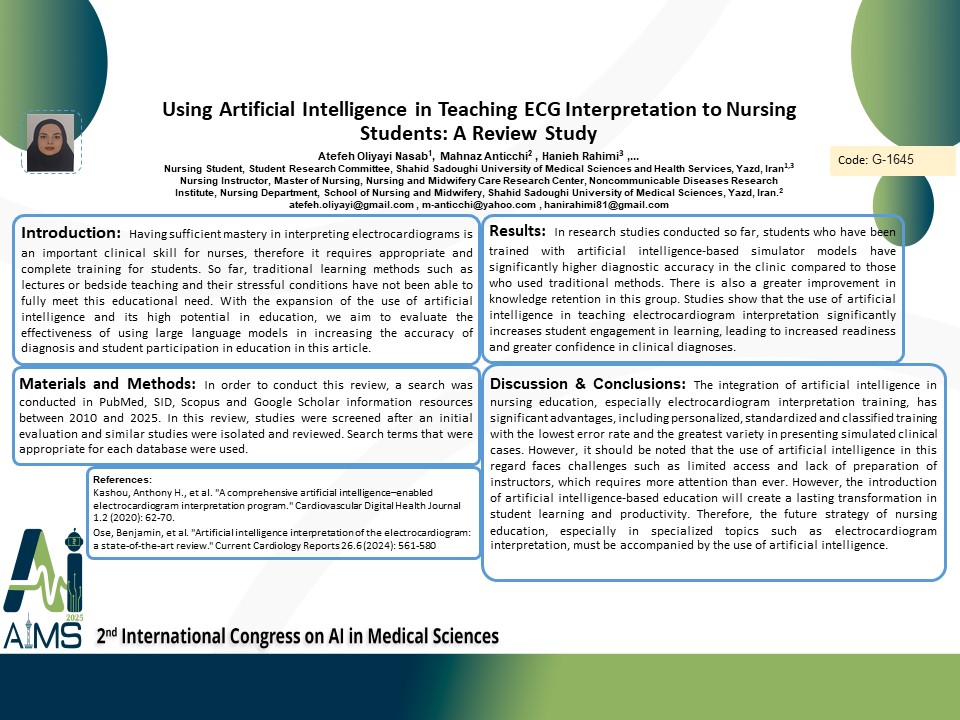Using Artificial Intelligence in Teaching ECG Interpretation to Nursing Students: A Review Study
Code: G-1645
Authors: Atefeh Oliyayi Nasab ℗, Mahnaz Anticchi *, Hanieh Rahimi, Atieh Eftekhari, Fateme Nikgohar
Schedule: Not Scheduled!
Tag: Clinical Decision Support System
Download: Download Poster
Abstract:
Abstract
Background and Aims: Having sufficient mastery in interpreting electrocardiograms is an important clinical skill for nurses, therefore it requires appropriate and complete training for students. So far, traditional learning methods such as lectures or bedside teaching and their stressful conditions have not been able to fully meet this educational need. With the expansion of the use of artificial intelligence and its high potential in education, we aim to evaluate the effectiveness of using large language models in increasing the accuracy of diagnosis and student participation in education in this article. Methods: In order to conduct this review, a search was conducted in PubMed, SID, Scopus and Google Scholar information resources between 2010 and 2025. In this review, studies were screened after an initial evaluation and similar studies were isolated and reviewed. Search terms that were appropriate for each database were used. Results: In research studies conducted so far, students who have been trained with artificial intelligence-based simulator models have significantly higher diagnostic accuracy in the clinic compared to those who used traditional methods. There is also a greater improvement in knowledge retention in this group. Studies show that the use of artificial intelligence in teaching electrocardiogram interpretation significantly increases student engagement in learning, leading to increased readiness and greater confidence in clinical diagnoses. Conclusion: The integration of artificial intelligence in nursing education, especially electrocardiogram interpretation training, has significant advantages, including personalized, standardized and classified training with the lowest error rate and the greatest variety in presenting simulated clinical cases. However, it should be noted that the use of artificial intelligence in this regard faces challenges such as limited access and lack of preparation of instructors, which requires more attention than ever. However, the introduction of artificial intelligence-based education will create a lasting transformation in student learning and productivity. Therefore, the future strategy of nursing education, especially in specialized topics such as electrocardiogram interpretation, must be accompanied by the use of artificial intelligence.
Keywords
Artificial Intelligence, Nursing, Electrocardiogram, Large Language
